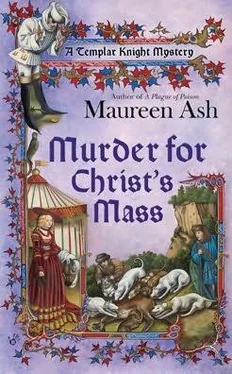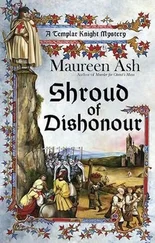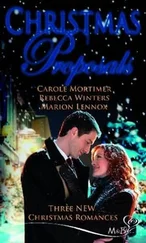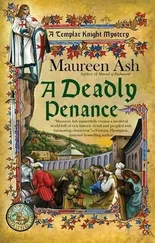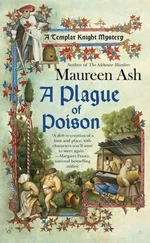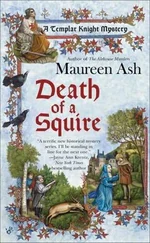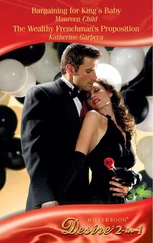Maureen Ash - Murder for Christ's Mass
Здесь есть возможность читать онлайн «Maureen Ash - Murder for Christ's Mass» весь текст электронной книги совершенно бесплатно (целиком полную версию без сокращений). В некоторых случаях можно слушать аудио, скачать через торрент в формате fb2 и присутствует краткое содержание. Жанр: Исторический детектив, на английском языке. Описание произведения, (предисловие) а так же отзывы посетителей доступны на портале библиотеки ЛибКат.
- Название:Murder for Christ's Mass
- Автор:
- Жанр:
- Год:неизвестен
- ISBN:нет данных
- Рейтинг книги:5 / 5. Голосов: 1
-
Избранное:Добавить в избранное
- Отзывы:
-
Ваша оценка:
- 100
- 1
- 2
- 3
- 4
- 5
Murder for Christ's Mass: краткое содержание, описание и аннотация
Предлагаем к чтению аннотацию, описание, краткое содержание или предисловие (зависит от того, что написал сам автор книги «Murder for Christ's Mass»). Если вы не нашли необходимую информацию о книге — напишите в комментариях, мы постараемся отыскать её.
Murder for Christ's Mass — читать онлайн бесплатно полную книгу (весь текст) целиком
Ниже представлен текст книги, разбитый по страницам. Система сохранения места последней прочитанной страницы, позволяет с удобством читать онлайн бесплатно книгу «Murder for Christ's Mass», без необходимости каждый раз заново искать на чём Вы остановились. Поставьте закладку, и сможете в любой момент перейти на страницу, на которой закончили чтение.
Интервал:
Закладка:
The Templar was hailed by the guard on the gate and asked his name and the purpose of his visit. Once Bascot told him, the guard sent a servant running to the house and, after a few moments, Legerton’s steward appeared. Bowing low, the steward said he would be pleased to take the Templar to his master and, calling for a groom to take charge of Bascot’s horse, led his two visitors across the yard.
The main door to the house was made of thick planks of oak, but swung easily open at the steward’s command to the doorward and, as it did so, strains of music could be heard coming from inside. Across a narrow entryway a door led into the hall, a large chamber with a high ceiling of crisscrossed oak beams where, in an open space in the middle of the room, about a dozen people were engaged in a lively dance called an estampie. At the far end, on a shallow dais, was a table at which five people-two of them young boys-were sitting. Other, smaller, tables all laid with food, and at which a number of people were seated, were scattered around the perimeter of the room.
“If you will wait here, Sir Bascot, I shall tell Master Legerton of your arrival,” the steward said and threaded his way past the dancers to the table on the dais.
Leaning down, the steward spoke in a respectful manner to the man seated in the central position. He had a full head of thick dark hair and a florid, well fleshed face. His attire was sumptuous; an expensive scarlet wool tunic enclosed his muscular frame and atop his head he wore a matching soft cap adorned with a brooch of silver filigree. As he listened to the steward, he turned his gaze in the Templar’s direction. Finally he nodded and rose from his seat. There was a look of irritation on his face as he came down the length of the room, but it was smoothed over by the time he reached Bascot.
“I am Walter Legerton,” he said. “My steward tells me you wish to speak to me privily.”
“That is correct,” Bascot told him, “and to your assayer, Simon Partager.”
“May I ask what this is about?” Legerton enquired. “As you can see, we have a number of guests-family and friends-who have come to celebrate the holy days. They will not look kindly on my deserting them.”
The exchanger’s tone was tinged with impatience and Bascot felt his choler rise. He tried to curtail it, however, and answered in a polite, if chilly, manner. “Master de Stow’s clerk, Peter Brand, was found dead yesterday in the cathedral quarry. He was murdered. Sheriff Camville has asked me to investigate the matter. I have come to ask you, and your assayer, if you have any knowledge that may assist us in apprehending his killer.”
Legerton’s face paled a little, but his response contained a hint of peevishness. “I am sorry to hear of Brand’s death, but he was a clerk. Apart from seeing him about the mint in de Stow’s company, I have barely spoken to the man. How could I be expected to know anything that would be pertinent to his murder?”
“I have been instructed to ask for information from everyone who came into contact with Brand,” Bascot replied brusquely, wondering if the exchanger was as heartless as he seemed or if his manner was a screen to hide a deeper emotion. “If you have a chamber where I may speak to you and your assayer apart from your guests, the matter should not require you to be absent from your company for more than a few minutes.”
Bascot’s tone left Legerton in no doubt that he found the exchanger’s attitude annoying. Legerton also recalled that while de Marins had said he had come on behalf of Sheriff Camville, the knight was in the temporary service of Nicolaa de la Haye, who was reputed to be on terms of great friendship with the king. In the exchanger’s position as a royal official, it would not do to jeopardize his continuance in the post by leaving himself open to complaint from anyone who had King John’s ear. He gave Bascot an assurance of his cooperation and, directing his steward to ask Partager to attend him, led the Templar to a small chamber just off the entryway. Gianni unobtrusively followed his master through the door. Although there was a brazier burning in a corner, there was little else in the room aside from a small table set with two wine cups and a large chest bound with iron bands and sealed with a stout lock.
“This is where my household accounts and duplicate records of transactions at the exchange are kept,” Legerton explained. “The room is not used for any other purpose, so we will not be disturbed.”
As Bascot nodded in response, there was a light tap at the door and the assayer, Simon Partager, entered the room. He was a man of about Bascot’s own age, mid-thirties, with a thin, sensitive face and weary eyes. His hair was light brown in colour, as was his neatly trimmed beard, and his clothing was of practical design and quality. Bascot recalled catching a glimpse of him in the exchanger’s hall a few moments before. Partager had been in the company of a fair-haired woman who was pretty of face and coy in demeanour. Although seated beside the assayer, she had been engaged in animated conversation with the man across the table from her, giving him admiring glances as they spoke together.
“Sir Bascot has just told me that Helias’s clerk, Peter Brand, has been murdered,” Legerton said to the assayer. “His body was found in the cathedral quarry yesterday and Sir Bascot has come to ask if either of us know anything that may indicate why he was killed.”
Partager’s face registered an expression of shock, but it was difficult to tell if it was genuine or feigned. The muscles in his jaw tightened for a moment and then he said, “That is terrible news. He was a likeable young man. Are you… are you sure he was murdered?”
“Since he was stabbed through the heart,” Bascot said dryly, “I think the assumption he was murdered can be taken as a true one.”
The Templar paused slightly to watch both men’s reaction to the gory detail and then said, “It would appear that Brand was murdered four days before Christ’s Mass, the day the snowstorm began, since he was last seen at work earlier that day. I am trying to find out why Brand was in the quarry that afternoon. Do either of you know the reason?”
Legerton did not even deign to answer. He had already said he had hardly spoken to the clerk and his impatient manner indicated he had consented to the interview with the Templar only on sufferance. Partager, however, gave a reply.
“I have no knowledge of Peter’s movements outside the mint, Sir Bascot, and know nothing of his personal affairs,” he said in a stiff manner. “He certainly never made mention, in my hearing, that he had any intention of going to the quarry on that day or at any other time.”
Bascot turned to the exchanger. “I am told you attend your office on three days of the week, Master Legerton. I presume you use the quarters above for your night’s rest at those times. Is that correct?”
The exchanger bridled a bit at the question, but answered all the same. “Yes, I do.”
“And you, Master Partager, do you stay there as well when you are at work?”
The assayer replied that he did, since there was more than one bedchamber in the lodgings. “I often stay there alone,” he added, “on those occasions when my duties require that I remain at the exchange after Master Legerton has gone home.” There was a hint of bitterness in his tone.
Bascot had noted Legerton’s unspoken objection to the query and explained his reason for asking it. “I am trying to ascertain the security of the exchange. There is reason to believe Brand was robbed at the time of his murder and since de Stow tells me the clerk did not possess a great deal of money, I am wondering if he had perhaps stolen from his place of work and was attacked for the contents of his scrip. De Stow explained the precautions that are taken to keep all the silver safe but, as you are probably aware, any determined and clever thief can find a way through even the most stringent safeguards.”
Читать дальшеИнтервал:
Закладка:
Похожие книги на «Murder for Christ's Mass»
Представляем Вашему вниманию похожие книги на «Murder for Christ's Mass» списком для выбора. Мы отобрали схожую по названию и смыслу литературу в надежде предоставить читателям больше вариантов отыскать новые, интересные, ещё непрочитанные произведения.
Обсуждение, отзывы о книге «Murder for Christ's Mass» и просто собственные мнения читателей. Оставьте ваши комментарии, напишите, что Вы думаете о произведении, его смысле или главных героях. Укажите что конкретно понравилось, а что нет, и почему Вы так считаете.
